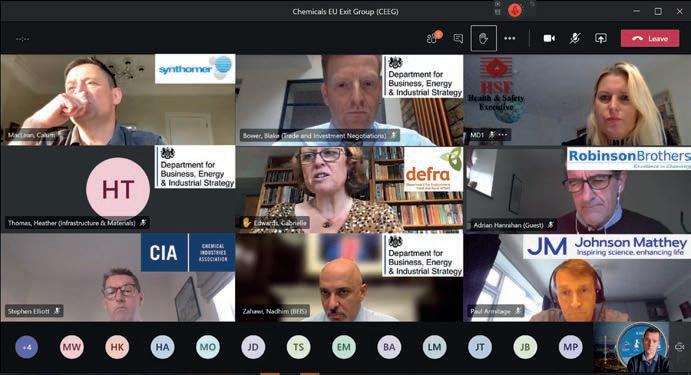
2 minute read
Industry challenges UK REACH
Attempting to secure changes to the current UK REACH legislation has been the priority for BCF’s public affairs work for some time now.
As you will recall, the UK adopted its own version of REACH when the UK left the EU on 1st January, essentially copying and pasting the EU version into domestic law. We, along with the chemicals industry and manufacturers of downstream products reliant on the sector’s output, have consistently called on the Government to make changes to the legislation, arguing that the system is not designed with the size and structure of the UK manufacturing sector in mind. The current regulations will require a wholesale registration – including full data dossiers which may also require additional animal testing - of substances being used in this country in a new UK database. It will also add numerous new requirements on downstream users who have not had experience of having to deal with REACH in this way before. As part of our campaigning for change, in February, we composed a letter alongside the Chemical Industries Association and Chemicals Businesses Association calling for change. We made an alternative proposal that would not involve wholesale re-registration with data-dossiers for all substances but would still provide the UK regulator with data to do its job yet would maintain high standards of health and environmental safety. The letter was co-signed by a total of 26 downstream trade associations including utilities, the aerospace, construction and automotive sectors, the Food and Drink Federation, and the leading UK manufacturers body, Make UK. The aim of the letter was to try to demonstrate to Ministers that UK REACH was not ‘just’ a problem for ‘chemicals companies’ but would impact severely on products and services downstream, affecting millions of people across the UK.
Advertisement
The result of the letter was that Defra agreed to set up a series of working groups with industry. Those meetings took place on and off from February into May. BCF were part of the industry group, together with Simon Aldersley from U-POL, in order to help represent the interests of downstream users. While the content of the discussions was under Chatham House rules, we can say that Defra did at least listen and there was an exchange of data and ideas about different options. We should also point out that while Defra have been engaging with us, they have also been engaging with NGOs. The latter have since publicly urged that the current UK REACH proposals should not be watered down.
The result of the working group discussions will now need to be played back to Ministers, who will have to make the final decision about whether to proceed as planned or whether to accept an alternative. We are expecting those Ministerial meetings to happen imminently.
What happens next is dependent on those Ministerial decisions. We obviously hope that they will agree to make changes to UK REACH which will be less onerous on business than they are currently. However, if the decision does not go our way, we will not be leaving the matter there and will continue to press for mitigations to the system. As ever, we will keep members updated on progress.Lobbying the top table on Chemicals and EU Exit










